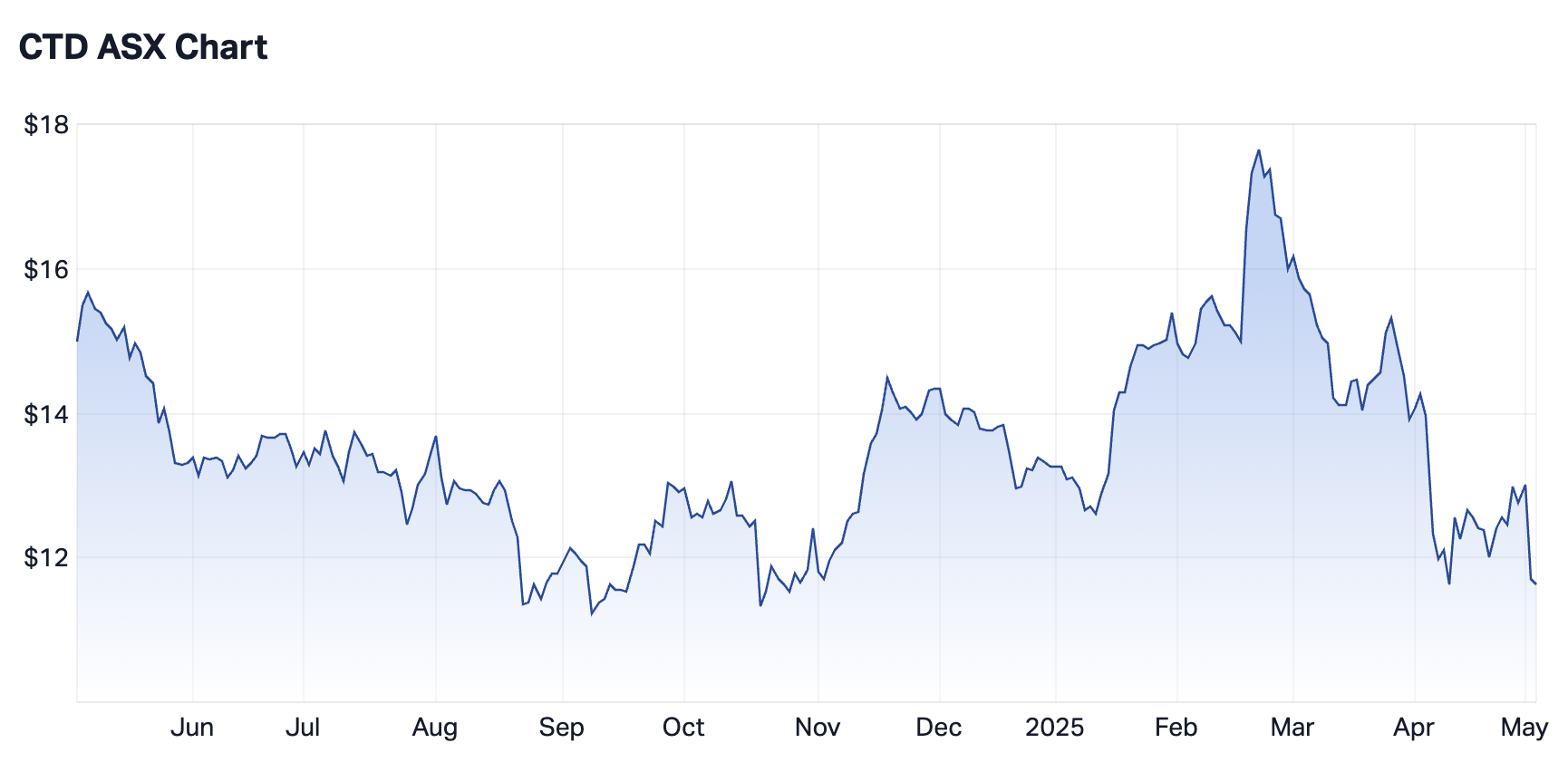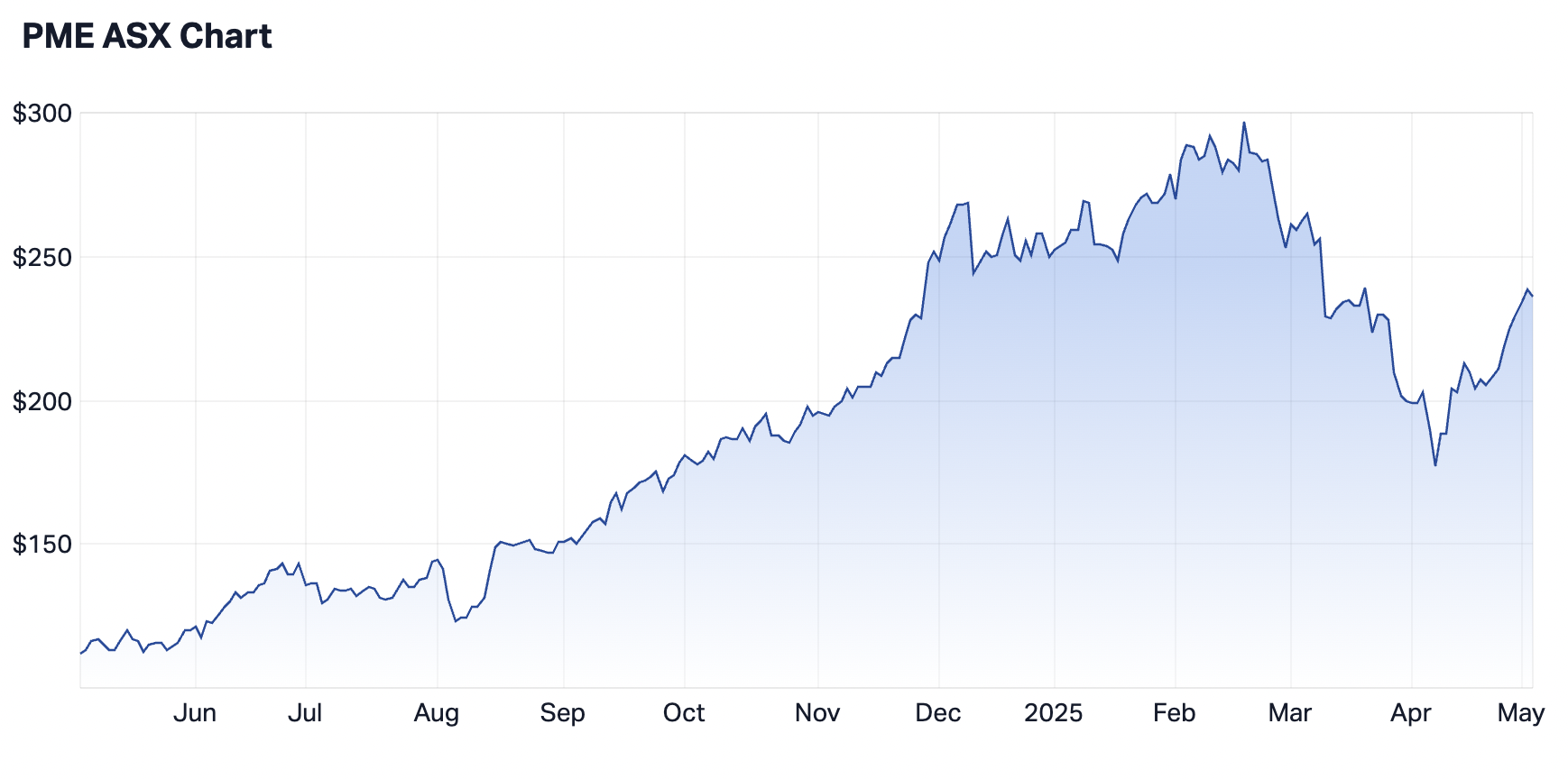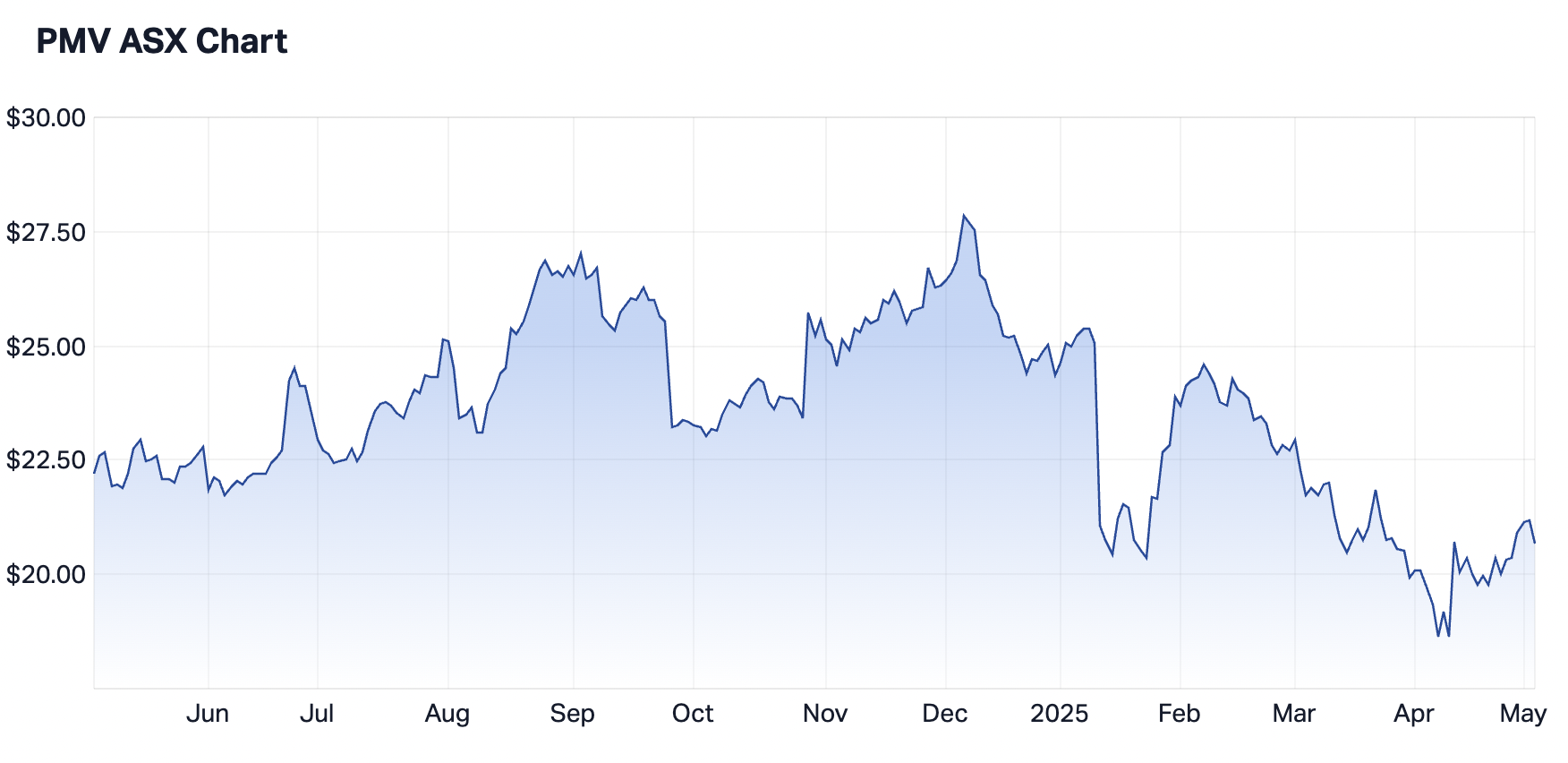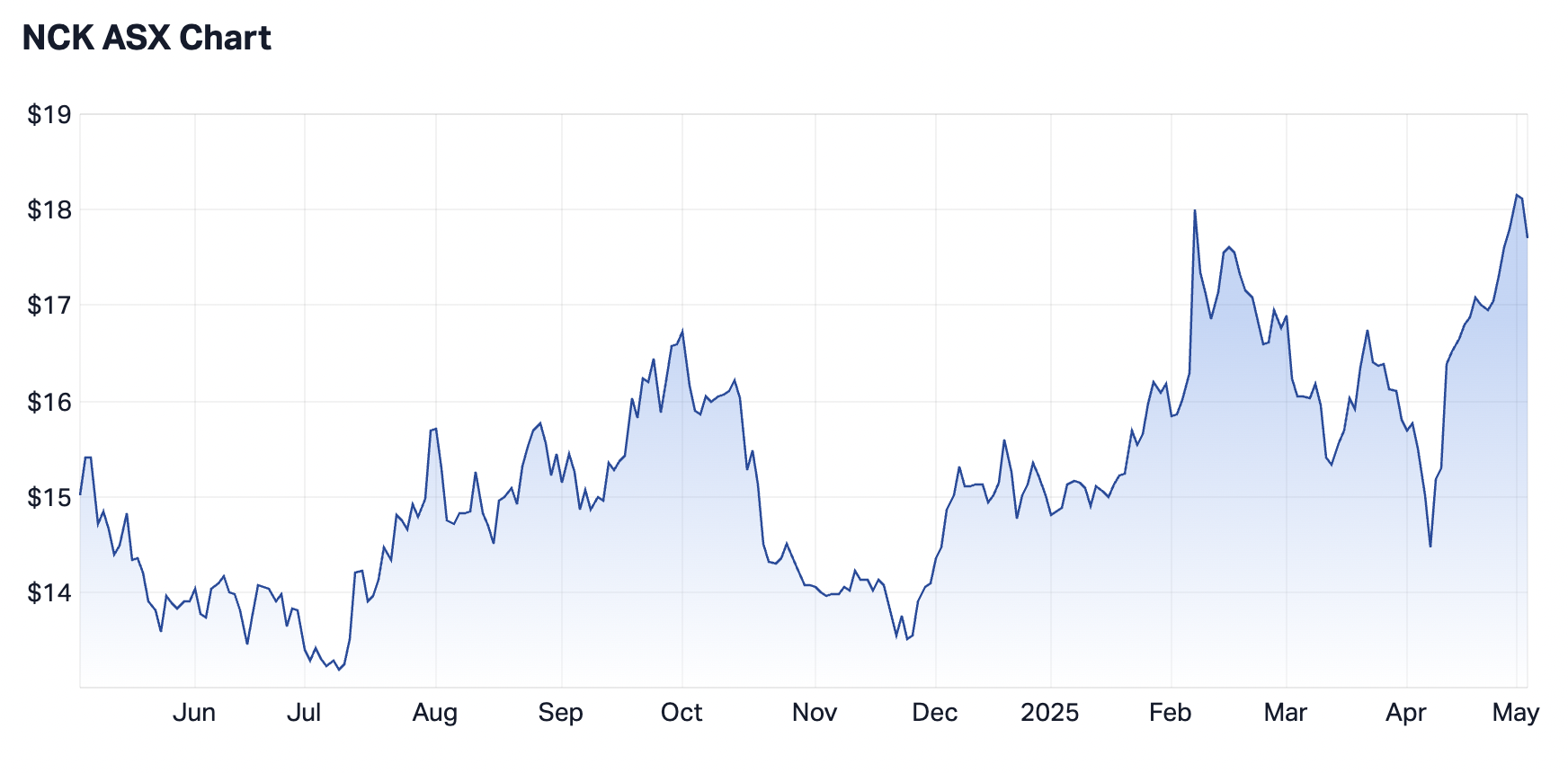The ASX stocks fundies are eyeing right now
Aussie investors retain an admirable level of national pride when it comes to what they keep in their portfolios, averaging almost 50% exposure to local stocks despite the ASX only accounting for a few percent of global equity markets.
But even they’ve slowly been turning away from the local market in recent years, mostly towards the big dogs in the US. In 2024 alone, Aussie investors ploughed $5 billion into US-focused ETFS.
So what would it take to get things moving back the other way?
While they don’t make the global headlines, many Aussie stocks have been quietly outperforming their global counterparts during both the recent selloff and the ongoing recovery.
And we’re not only talking about Commonwealth Bank (ASX: CBA).
At the recent Lonsec Symposium, three local fund managers made the case for looking local and the top ASX stocks they’ve bought off the back of recent volatility.
The quiet achievers
According to Bradley Clibborn, portfolio manager at Bennelong Funds Management, one of the more interesting trends in recent months has been the divergence between the top ASX defensive stocks and the global growth stocks.
But while that presented an opportunity for anyone who got their positioning right, it’s not changing their thinking coming out of the recent selloff.
“Our process doesn't change through a market like this. Over the long term, share prices follow earnings,” said Clibborn.
“We’re looking for the types of businesses that haven't had a change in their structural growth prospects over the long term, but their share prices have changed pretty materially.”
He names Breville (ASX: BRG), WiseTech (ASX: WTC) and James Hardie (ASX: JHX) as stocks that fit the bill - having experienced recent deratings despite their structural growth remaining intact.
On Australian AI plays, Clibborn says to look for people-heavy businesses that can automate many of their processes.
An example is Corporate Travel Management (ASX: CTD), where staff make up 70% of its cost base and 35% of its inbound calls don’t generate revenue.
It has launched its own AI tool called Scout to complement its customer-facing platform and help improve revenues and reduce costs, and has almost hit its financial year target of $1 billion in new client wins within seven months.

Growth is the key
Dushko Bajic, Head of Australian Equities Growth at First Sentier Investors, agrees that structural growth stocks are where the current opportunities are.
“The oversold part of the market is the higher growth market, especially structural growth,” he said.
"Interestingly, when you think about their business models, they're largely not dependent on the underlying economy. They're tending to create a new market that doesn't exist, or they're gaining tremendous market share. What is happening in the economy is rather irrelevant.”
“The market tends to shoot first and ask questions later.”
High-growth companies tend to trade on higher valuations. Since Covid, these companies have tended to experience higher price volatility in line with the volatility of their underlying cashflow, says Bajic.
So when the high-growth, high-beta stocks get sold off more than the rest of the market, it opens up an opportunity.
On the other side, the hard asset companies that get bought up as defensive plays are more exposed to ongoing trade tensions.
“It's actually the flight to safety stocks that are likely to be the ones that have a little bit of earnings headwinds as opposed to the structural growers,” says Bajic.
He cites crowd favourite Pro Medicus (ASX: PME) as one of the Aussie growth stocks that’s primed for a rebound and presented a bargain during the recent crash.
"You could buy a $300 stock at $185."
“Whatever happens in the US economy will have no impact on next year’s cash flows, earnings and revenues of Pro Medicus. They have 7% market share in the radiology imaging market and they’re growing at a rapid rate.”

Along with Pro Medicus, he also puts forward Xero (ASX: XRO) and WiseTech, which could be big winners from the deflationary benefits of AI.
While chip companies looking to onshore production to the US will likely see their opex and capex rise, companies that benefit from the productivity gains that AI brings may actually see a deflationary impact on their operating costs.
Looking ahead, he says this week’s Macquarie conference, which functions as a mini reporting season, might tell us a bit more about where Aussie companies are right now.
And the word on the grapevine is to expect more fireside chats and less slide decks - a signal that points to the heightened uncertainty lingering in the market.
“There's going to be a fair bit of volatility. The key thing to look out for is the perennial underperformers are going to grab this volatility as a wonderful excuse for an earnings downgrade and a miss.”
He also makes the interesting point that the recent turmoil bears more than a passing resemblance to Covid - huge supply chain disruptions and the inability to source out of China.
And what happened then was that the higher quality businesses with dominant market positions and strong business models actually saw their growth accelerate.
He suggests keeping an eye on the 25% of companies that opt for a slide deck over a fireside chat. They're the ones with more certainty around their earnings and confidence around their next 6-12 months.
Our trade war winners
Perpetual Asset Management's Vince Pezzullo says the ongoing US-China trade war throws up an unexpected opportunity for local companies.
With the push to move manufacturing back stateside, and US tariffs making Chinese production more expensive, there’s the chance for Australian businesses to capitalise on the excess capacity in Chinese manufacturing.
He names Premier Investments (ASX: PMV), parent of sleepwear brand Peter Alexander, which has direct sourcing into China and is now renegotiating better contracts with its Chinese partners, as a clear beneficiary. It already boasts gross margins of 60%.

Nick Scali (ASX: NCK) is another, with margins also around the 60% mark and an expansion into the UK market that should benefit from an expected cyclical uptick in the UK economy.
It has big plans for the British market following its acquisition of the flailing Fabb Furniture, and Pezzullo shares the bullish sentiment.
"If I were going to put a dollar in any market at the moment, it would be the UK. I think that's where the biggest options are," he said.

Most importantly, there’s a new resilience to many Australian companies built up from years of Covid-related disruptions to supply chains and inventory levels that holds them in good stead, regardless of what the trade war throws at them.
“There's a siege mentality in those companies now. They're used to this volatility.”
3 topics
8 stocks mentioned
2 contributors mentioned

